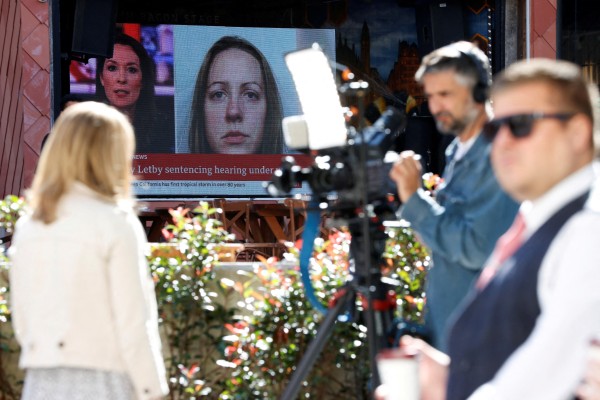An inquiry into the murder of seven newborn babies by British nurse Lucy Letby starts on
Tuesday to examine how the killings went undetected over several months, amid questions about her guilt which bereaved families say are distressing.
Letby, 34, was found guilty of murdering seven children and attempting to murder seven more between June 2015 and June 2016 while working in the neonatal unit of the Countess of Chester Hospital in Chester, northern England.
The public inquiry into the circumstances surrounding Lucy Letby’s crimes will begin on Tuesday.
But a group of doctors and statisticians have raised their concerns over the way data was presented at the original trial.https://t.co/dFgkdwE9D3 pic.twitter.com/sSs7QlIj9m
— Sky News (@SkyNews) September 9, 2024
Her case shocked Britain and prompted the government to order an inquiry, which will investigate the hospital and its response to concerns raised about Letby before her arrest.
The inquiry will also look at the circumstances surrounding the murders and attempted murders committed by Letby, including whether governance contributed to the failure to protect babies.
It will start in Liverpool on Tuesday with opening statements from lawyers working for the inquiry followed by lawyers representing the victims’ families.
Its work begins as Letby has reportedly hired a new legal team, with her lawyer Mark McDonald telling the BBC that “there is a strong case that she is innocent”.
Lawyers representing some of the victims’ families, however, say the speculation about her guilt or innocence, some of which has taken place on social media, has been distressing.
Prosecutors said Letby injected the infants with insulin or air or force-fed them milk, and a handwritten note found at her home after she was arrested stated: “I AM EVIL I DID THIS”.
She was sentenced to life without parole last year and in July was found guilty of a seventh charge of attempted murder, on which the original jury could not reach a verdict.
Letby has always denied harming any child in her care and – despite the jury’s verdicts and the rejection of her bid to appeal – her case has become a cause celebre, based on criticism of medical and statistical evidence presented at trial.
(REUTERS)
In a career spanning three decades and counting, Ramananda (Ram to his friends) has been the foreign editor of The Telegraph, Outlook Magazine and the New Indian Express. He helped set up rediff.com’s editorial operations in San Jose and New York, helmed sify.com, and was the founder editor of India.com.
His work has featured in national and international publications like the Al Jazeera Centre for Studies, Global Times and Ashahi Shimbun. But his one constant over all these years, he says, has been the attempt to understand rising India’s place in the world.
He can rustle up a mean salad, his oil-less pepper chicken is to die for, and all it takes is some beer and rhythm and blues to rock his soul.
Talk to him about foreign and strategic affairs, media, South Asia, China, and of course India.





